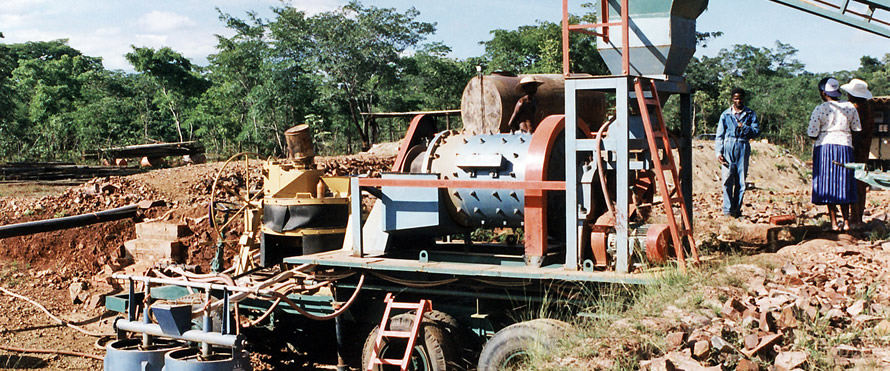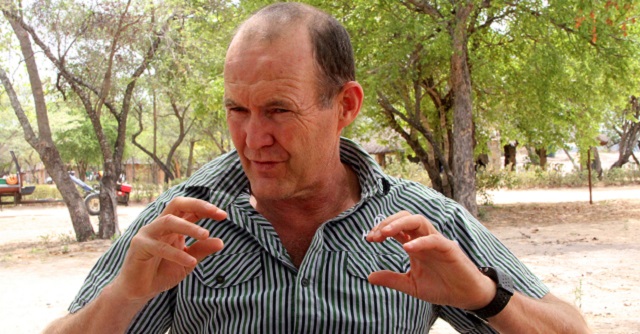
The Sunday News

 Tinomuda Chakanyuka Sunday News Reporter
Tinomuda Chakanyuka Sunday News Reporter
THIRTY-YEAR-OLD Mr Fortune Siziba from Zvishavane District under Chief Mapanzure’s area in the Midlands Province experienced a dramatic, yet saddening shift in his life after accidentally falling into a 24-metre deep pit while herding cattle in 2001.The pit was allegedly dug and left unrehabilitated by a chrome mining concern, during its mining operations in the area.
At the time of the tragic occurrence, Mr Siziba was doing his O-levels and was forced to drop out of school owing to the injuries he sustained from the accident.
The mishap left Mr Siziba with speech, sight, walking and hearing challenges and to date he is still enduring the effects of that accident.
“The accident left me partially paralysed. I can’t walk, talk, see or hear properly. My condition does not allow me to do physically challenging jobs. I can no longer fend for myself and I now rely on well-wishers for my upkeep,” Mr Siziba recently told Sunday News.
Sadly, Mr Siziba never received any compensation and had to deal with his plight on his own, sometimes with the assistance of well-wishers.
The tragedy that befell Mr Siziba is just one of many cases of communities reeling from the negative effects of mining operations carried out in their areas.
Numerous similar cases can be cited with some of them being of an even bigger magnitude.
A couple of years ago, in Shurugwi town’s Peak Mine area, a disused tunnel which cut across underneath the area, collapsed and swallowed an entire house with two occupants, a woman and her child.
The depth of the tunnel could not be ascertained and the remains of the house and its occupants were not recovered.
Recent media reports suggest that the city of Kwekwe is sitting on a time bomb, as cross cutting tunnels that run underneath the city are threatening to swallow parts of the central business district.
A team of experts from the Ministry of Mines and Mining Development has since been dispatched to the gold rich city on a fact-finding mission to ascertain the extent to which the tunnels are threatening infrastructure.
The reports have caused panic among Kwekwe residents who fear an impending catastrophe at the hands of the disused tunnels that were left by King Solomon’s Mine which later became Globe and Phoniex Mine in the 1960s and is now owned by Kwekwe Consolidated Gold Mines.
Still in the mining town of Kwekwe, last year illegal panners were reported to have dug and emerged from under a classroom at Globe and Phoenix Primary School in the middle of the night.
As alluded to earlier, these cases and many that were not mentioned in this piece show the extent to which communities have suffered and continue to suffer at the hands of mining activities carried out in their areas by big mining companies.
The cases also show the hypocrisy of some mining companies, who have a glut of Corporate Social Responsibility (CSR) programmes, designed to give back to communities from which they will be exploiting resources.
Now, when mining activities or the aftermath thereof appear to be a danger to humanity, the sincerity of mining companies’ CSR programmes becomes questionable.
Do these huge conglomerates really care about Mr Siziba and his fellow villagers in Mazvihwa?
Do these companies really care about a 70-year-old grandmother who survives on selling airtime in Kwekwe’s CBD and everyday is facing the risk of being swallowed into earth, while going about her vending business?
If they do, which is highly doubtful, why would they leave mine shafts, pits and tunnels without being reclaimed, posing great danger to people and livestock.
Communities and their members have fundamental rights that they should enjoy, such as the right to life and good health among others.
The enjoyment of such rights is greatly threatened by mining companies’ activities.
Mr Siziba had his right to good health compromised, simply because a mining company failed to reclaim pits and shafts they dug while conducting mining activities.
The woman who was in the Peak Mine house that was swallowed into a disused tunnel was denied the right to life because the mining company which dug the tunnel failed to take due care to ensure that the tunnel would not, in the long run, affect the natural course of life on the surface of the earth.
Zimbawe Environmental Law Association (Zela) believes such negligent practices by mining companies were tantamount to gross human rights abuse that should not be left unabated.
Although the mantra of human rights has for a long time targeted governments as the primary duty bearers, evidence, especially the cases cited above, has shown that business, particularly mining companies also have a role to play in addressing human rights abuses within the sector.
In 2008, the United Nations endorsed the “Protect, Respect and Remedy Framework” for business and human rights. This framework was developed by the then Special Representative of the UN Secretary General, Professor John Ruggie following extensive research and consultations.
This framework defines the responsibilities of companies and governments to prevent human rights abuses by businesses. According to the framework, states must protect their citizens from company human rights abuses.
Businesses should respect human rights, no matter where they operate. All victims of human rights abuses by companies must have access to an effective remedy.
It should therefore be noted that there are best practices, standards and guidelines that guide the interaction between human rights and businesses, balancing the profit motive and the obligation to observe human rights.
One such best practice is the United Nations Guiding Principles on Business and Human Rights.
It is against this background that Government is urged to tighten screws on mining companies operating in the country, closely monitoring their activities to ensure that they do not wantonly trample on the rights of citizens.
In light of this Zela is implementing a project called the Pillars in Practice based on the UNGPs with active support from CRD.
The project is being implemented in partnership with Social Accountability International (SAI) and Danish Institute for Human Rights (DIHR). The objective of the project is to encourage government, civil society, trade unions and businesses to implement the United Nations Guiding Principles on Business and Human Rights.
The few cases mentioned above are classic and indisputable examples that Zimbabwe has not done enough to protect its citizen’s rights against the greedy interests of capital.
“While the UNGPs are applicable to all businesses irrespective of their area of focus or size, they are particularly relevant to Zimbabwe’s mining sector due to its potential to contribute to economic recovery, stabilisation and eventual growth.
“The mining sector in Zimbabwe has been plagued by allegations of gross human rights abuses of communities and mine workers among other challenges. Violations of communities’ rights include their civil, political, environmental, economic, social and cultural rights. Workers’ rights violations include unsafe working conditions and low wages,” said Mr Dhliwayo, as he expanded on various other ways that companies abuse human rights.



